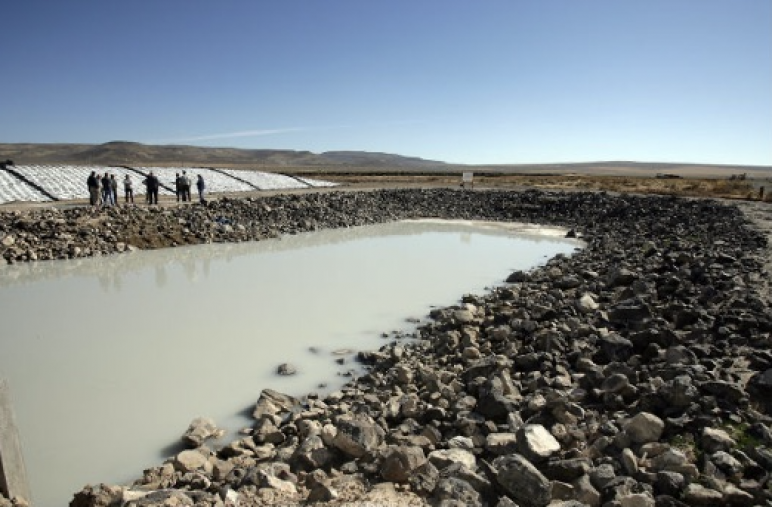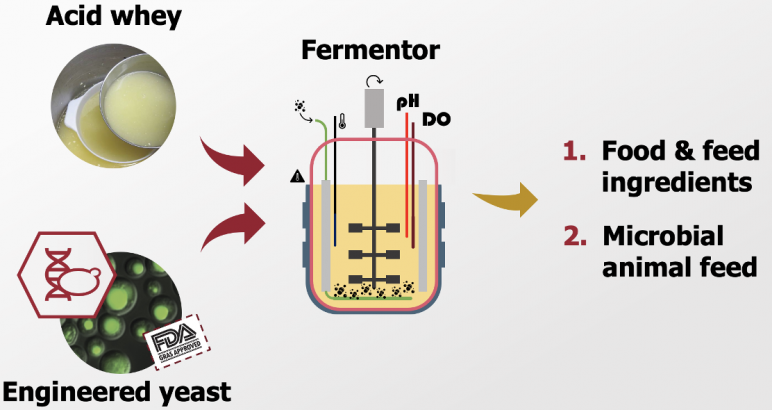Our Research Converting dairy industry waste into food and feed ingredients

An acid whey disposal pit. Image credit: Mychel Matthews on magicvalley

Bioconversion of acid whey into valuable food/feed ingredients and animal feed by using engineered yeast cells. Image credit: Stephanopoulos group.
Principal Investigators
Challenge:
How can metabolic engineering help us turn food industry waste streams into high value-added compounds? Can we implement this technology to existing food facilities?
Research Strategy
- Engineer microbes to efficiently use different carbon sources found in dairy industry waste and synthesize valuable compounds
- Validate technology in large-scale bioreactors and de-risk the product’s purification process
- Perform techno-economic analysis to identify process and economic bottlenecks or targets for further research and improvement
Project description
Greek yogurt is a dairy industry product that has achieved tremendous growth in the United States over the past decade due to its good taste and high nutritional value. However, the production process of Greek yogurt also generates a liquid waste by-product whose untreated disposal poses a serious environmental problem due to its high organic content and unpleasant acidic odor that is offensive to surrounding communities. This dairy industry waste is called acid whey and is generated annually at very high volumes — it is estimated that more than 3 million tons of acid whey is generated in the U.S. alone each year. This places a significant economic burden on the dairy industry but at the same time presents a great opportunity as it can be used for the production of valuable products. Using metabolic engineering, this project proposes to construct a microbial platform that will utilize acid whey and produce carotenoids that can serve as food supplements or feed additives. Alternatively, the carotenoid-enriched cell biomass can be used as nutritious animal feed.
Outcomes
- Experimented with acid whey that was provided by a creamery located in Vermont
- Successfully engineered strains of a yeast species called Y. lipolytica to utilize acid whey and synthesize a range of natural compounds like lycopene, beta- and alpha-carotene, and astaxanthin, which have applications in the food, animal feed, and cosmetics industries
- Conducted customer discovery with the dairy industry, the animal feed sector, and companies that use carotenoids in the formulation of their own products, mostly as food supplements
- Performed techno-economic analyses using acid whey as the main feedstock and concluded that the product could be offered at competitive prices, thus capturing a significant share of the target market
Additional Details
Impact Areas
- Water
- Food
Research Themes
- Technology & Commercialization
- Sustainability & Adaptation
- Transforming Food Systems
Year Funded
- 2021
Grant Type
- Solutions Grant
Status
- Completed

